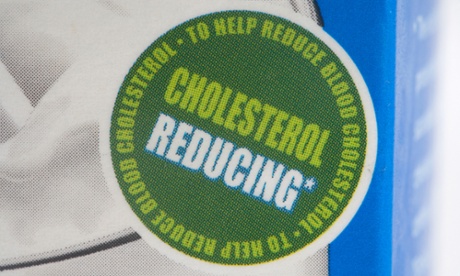
Humans show biases in many ways. We are what researchers call cognitive misers, we conceptualise our world using mental shortcuts in an effort to make quicker, more efficient decisions. One area in which we rely on mental shortcuts is food consumption. You might, for example, choose an apple as a snack and not worry about counting its calories because it’s considered “healthy”. These mental shortcuts are closely tied to what researchers call the health halo effect.
The health halo effect refers to the act of overestimating the healthfulness of an item based on a single claim, such as being low in calories or low in fat. US researchers report that consumers frequently confuse “low fat” with “low calorie”, resulting in the overconsumption of certain foods.
A study using both relatively healthy (granola) and unhealthy (M&M candy) items found that a low-fat claim led consumers to believe the item was healthy in other ways, specifically, lower in calories. This halo effect gives us license to eat more than we otherwise would because we feel less guilty if a product is promoted as low in fat or calories. Perhaps most troubling is that this effect is particularly strong for overweight consumers.
In a separate study researchers demonstrated that when desserts with healthy-sounding names (“Cheesecake de’ Lite”) and unhealthy sounding names (Bailey’s Irish Cream Cheesecake) were presented side by side on a menu, consumers preferred the healthier-sounding option. However, when these same desserts were presented separately, the unhealthier items were preferred to a much larger degree. This effect was explained by the guilt that consumers experience when choosing to indulge. When no relatively healthy option is presented in the same context, the guilt is reduced.
Health halos are not just limited to claims about calories or fat. One common nutrient frequently misunderstood or ignored by consumers is sodium. Research shows that our attention to calories, fat, and sugar content is much greater than to sodium. One reason is that sodium levels are typically listed well after other nutrients on food labels and are more difficult for consumers to interpret. A recent American study found that while consumers underestimate calorie levels in both fast-food and full-service restaurant items, they underestimate sodium levels to a far greater degree. Likewise, consumers underestimated sodium levels to a much larger degree for meals they thought were healthy as opposed to unhealthy.
Is it really healthy?
Health halos can also be influenced by our judgments about companies. For example, people think of McDonald’s food as relatively unhealthy, while Subway, which promotes itself on fresh ingredients, is often thought of as a healthy alternative. Comparing these two fast-food restaurants, researchers found that people buying from Subway were less accurate at estimating the calories in their meals, underestimating their intake by an average of 151 calories.
If you are eating at a restaurant you believe is healthy, you assume that the food choices you are making are healthy as well. The same study found that people who thought their meal was healthy were more likely to add side dishes, drinks and desserts, resulting in more than twice as many additional calories. Interestingly, those consumers who reported that they were trying to eat healthier exhibited these same biases.
The formation of halos is not just limited to food marketing. Halos can be based on company image or reputation, such as being socially responsible. When we consider items marketed by firms that are known for being responsible stewards, we assume these companies also make “better” products, and that these products are more healthful in general. Researchers have found that a reputation for caring about stakeholders and employees leads people to both underestimate calorie content and overconsume foods marketed by these firms.
Using the context of corporate donations, research has suggested that a reputation for benevolence leads consumers to infer better performance of their food products. In one experiment when consumers were presented with a wine-tasting opportunity and told that one of the companies in the tasting donated 10% of sales to a charity, they rated the taste of that wine 15% higher than a company that presented no charity information.
Don’t believe healthy labels
In general, it appears that the health halo effect based on corporate social responsibility works in one of two directions, depending on the type of product marketed by the firm. Research has indicated that in product categories where ruggedness is a desired attribute, such as tyres, a reputation for social responsibility actually lowers performance expectations. However in categories such as food, where harmony with the environment is typically a positive attribute, consumers infer higher performance from products marketed by socially responsible firms.
So how do you help yourself make healthier choices, and not fall into the health-halo trap? Don’t let our guard down when you see items labelled with healthy-sounding terms. Just because the food says it is low in fat, don’t assume this means it is low in calories, low in sodium, or necessarily any healthier than other item. Know what you are eating by paying close attention to the nutritional information and, just as importantly, the recommended serving size.
The food hub is funded by The Irish Food Board. All content is editorially independent except for pieces labelled ‘brought to you by’. Find out more here.
Join the community of sustainability professionals and experts. Become a GSB member to get more stories like this direct to your inbox

